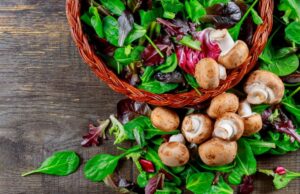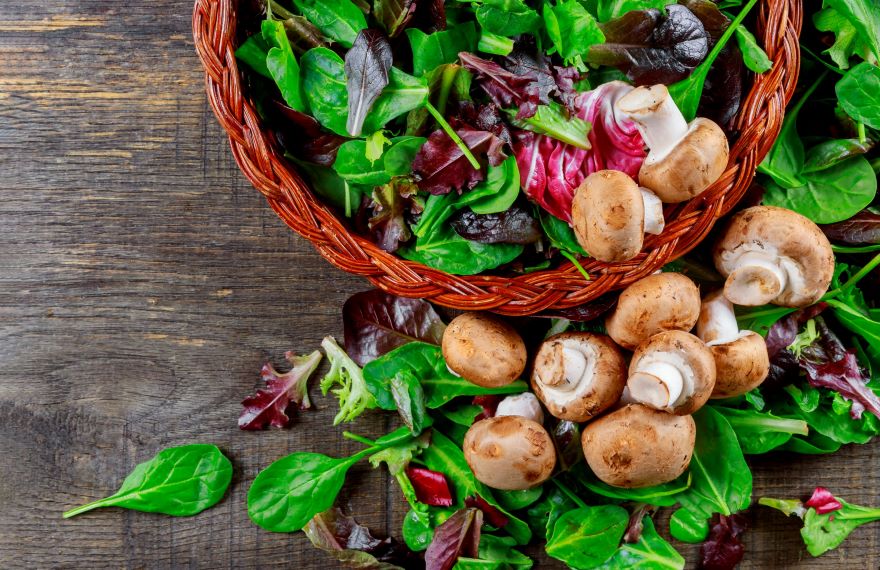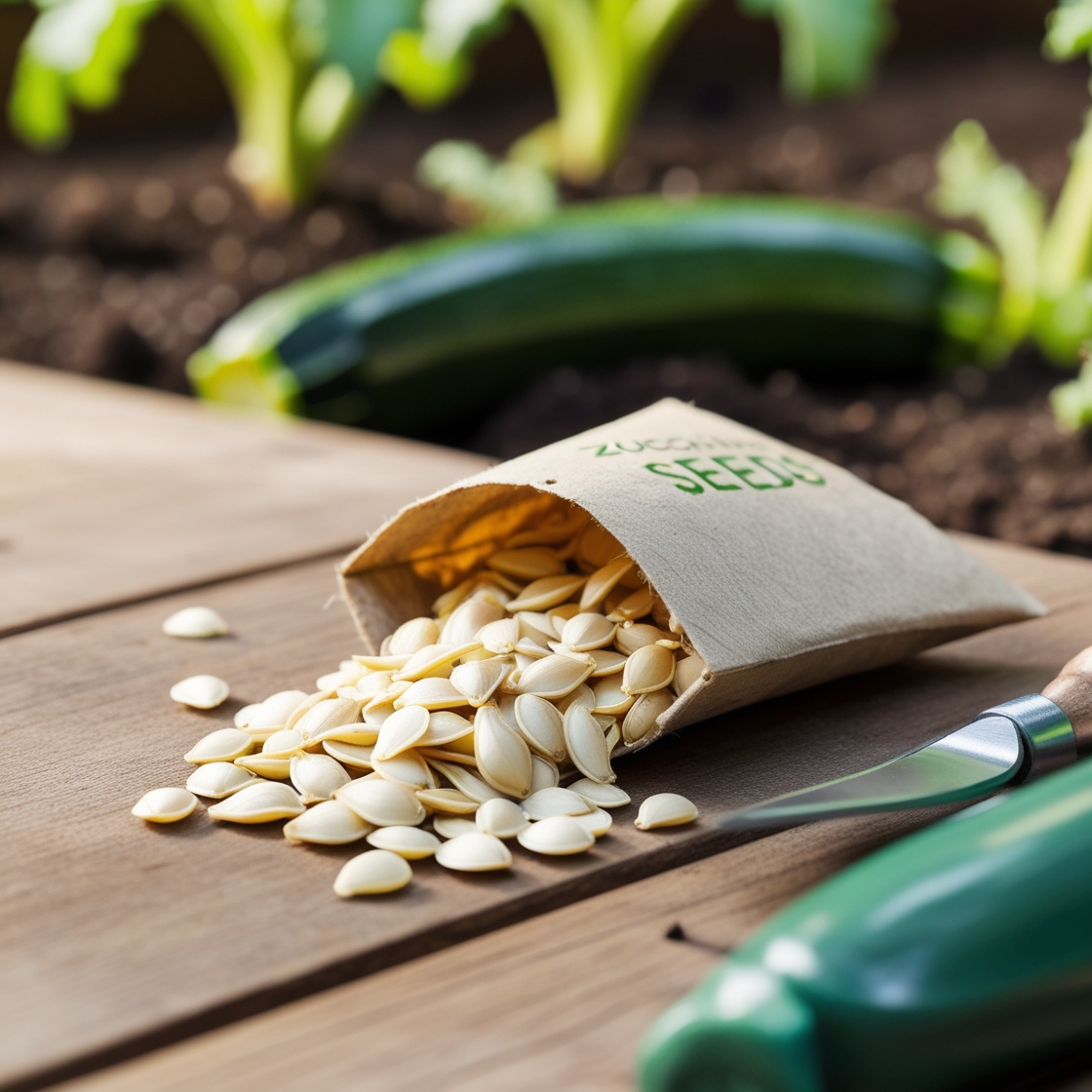GBOMBS is an acronym I like to use to remember some of the most nutrient-dense foods you can eat for optimal health: Greens, Beans, Onions, Mushrooms, Berries, and Seeds. This term was coined by Dr. Joel Fuhrman, who is well-known for founding the nutritarian diet—a plant-rich eating plan that focuses on micronutrients essential for good health. It promotes a diet abundant in vitamins, minerals, phytochemicals, and antioxidants, emphasizing whole, unprocessed foods. I try to eat these every day and you don’t need many of each to reap the full benefits.

Understanding the components of GBOMBS can be an easy and effective way to integrate nutrient-dense foods into your daily diet. Each element represents a group of foods with unique health benefits. Greens are the nutritional powerhouses loaded with vitamins and minerals. Onions and mushrooms have unique properties that support our immune system, whereas berries are known for their high antioxidant content. Beans and legumes offer fiber and plant-based protein, while seeds and nuts provide healthy fats and proteins. Including these foods in your diet can contribute to better health and protection against chronic diseases.
Key Takeaways
- GBOMBS foods contribute to optimal health and include Greens, Beans, Onions, Mushrooms, Berries, and Seeds.
- Dr. Joel Fuhrman’s nutritarian diet highlights the importance of these nutrient-dense foods.
- Including GBOMBS in one’s diet provides a wide array of health benefits and disease prevention.
Understanding GBOMBS
GBOMBS is an acronym that stands for Greens, Beans, Onions, Mushrooms, Berries, and Seeds. First introduced by Dr. Joel Fuhrman, this term encapsulates a list of particularly nutrient-dense foods that I find form the cornerstone of the nutritarian diet, a diet pattern I credit with a strong emphasis on foods that are high in nutrients but low in calories.
The Components of GBOMBS:
- Greens: Loaded with vitamins, minerals, and fiber, these vegetables are essential for a healthy immune system.
- Beans: They are a rich source of protein, fiber, and numerous micronutrients critical for bodily functions.
- Onions: Offering a high amount of antioxidants, onions can contribute to reducing inflammation.
- Mushrooms: Recognized for their ability to support the immune system, mushrooms also bring a unique umami flavor to meals.
- Berries: With their high antioxidant properties, berries can help combat oxidative stress.
- Seeds: They are nutrient powerhouses, providing healthy fats, protein, and various important minerals.
By incorporating GBOMBS into my daily diet, I ensure that I am consuming a broad spectrum of phytochemicals and micronutrients that can aid in the prevention of chronic diseases and support overall health. It’s important to note that each component of GBOMBS offers unique properties and contributes differently to the diet. For example, the potential role of certain foods in influencing the production of Trimethylamine N-oxide (TMAO), a compound linked with various chronic diseases, underlines the complexity of dietary impacts on health.
My focus is on whole, unprocessed versions of these foods to maximize the health benefits. Each GBOMBS category offers diverse options, accommodating various tastes and preferences, establishing a versatile foundation for healthy eating.
The Power of Greens
We often hear about the importance of incorporating a variety of vegetables into our diets, but leafy greens, in particular, hold a unique place at the pinnacle of nutrient-dense foods. Their profound impact on health through disease prevention and nutrient supply is unparalleled.
Nutritional Value of Leafy Greens
Kale, spinach, and bok choy are low in calories and rich in essential nutrients, making them highly beneficial. A cup of these greens provides a significant portion of the daily recommended intake of vitamins A, C, and K, plus minerals like calcium and iron. These vegetables are also excellent sources of dietary fiber, which is crucial for maintaining good digestive health.
The Role of Greens in Disease Prevention
The antioxidants and phytochemicals present in greens can have powerful effects on our health. Foods such as broccoli are noted for their cancer-fighting properties, largely due to compounds like sulforaphane. The high folate content in greens is vital for DNA synthesis and repair and is associated with reduced disease risks. Research underscores the relevance of nutritional efficiency in plants, which greens exemplify, influencing their ability to combat nutrient deficiency and its associated effects.
Incorporating Greens into Your Diet
I have found that one of the simplest ways to include more greens in my meals is by adding them to smoothies, salads, and soups. Dr. Fuhrman, creator of the nutritarian diet, advocates regular green consumption due to their nutrient density, a fundamental dietary principle. By making leafy greens a staple in your diet, you can boost your intake of fiber and vital nutrients effortlessly.
Onions: Layers of Benefits
I find onions to be a fascinating subject, not just for their culinary versatility but for their impressive array of health benefits. These pungent vegetables contain unique phytochemicals and flavonoids, solidifying their value as essential components in a health-conscious diet.
Health Advantages of Onions
Onions, a kitchen staple, offer health benefits beyond flavoring dishes, making them a valuable ingredient. Onions, part of the allium family with garlic and leeks, are rich in phytochemicals, particularly quercetin, prized for its antioxidants. These compounds help combat oxidative stress and may reduce inflammation.
Onions are included in Dr. Joel Fuhrman’s nutritarian diet, which aims to optimize health and longevity through nutrient-dense eating. This diet emphasizes foods that are naturally rich in micronutrients, phytochemicals, antioxidants, and fiber, with onions being a prime example.
The Allium Family and Cancer
My research into onions and their relatives within the allium family has led me to some interesting findings regarding cancer. Studies have provided evidence that the compounds found in onions may have protective effects against certain types of cancer. Eating allium vegetables is linked to a lower risk of cancer, especially gastric and colorectal types.
This protective effect is largely attributed to the potent combination of flavonoids and sulfur-containing phytochemicals found within these plants. Quercetin in onions promotes cancer cell apoptosis and inhibits tumor growth, contributing to their anticancer properties.
Mushrooms: Fungi with Health Elixirs

Mushrooms are powerful components in optimizing health and combatting chronic diseases. They are fundamental to the nutritarian diet I promote, which prioritizes micronutrient-rich foods for improved health outcomes.
Varieties and Their Unique Properties
Different mushrooms contain unique compounds that can impact health. Shiitake mushrooms, for instance, have beta-glucans that boost the immune system and inhibit cancer cell growth. Meanwhile, reishi mushrooms are notable for their ganoderic acids, compounds that help reduce high blood pressure and improve blood flow. Cremini and portobello mushrooms, rich in selenium, play an essential role in liver enzyme function and combat oxidative stress.
Immune Boosting Effects of Mushrooms
Mushrooms have remarkable immune-boosting properties. They are a significant dietary source of antioxidants and anti-inflammatory agents, contributing to cancer prevention. The intake of mushrooms has been associated with a lower risk of breast cancer, substantiated by their high content of conjugated linoleic acid which inhibits the enzyme aromatase involved in estrogen production. Regular consumption of mushrooms can lead to a strengthened immune system, which is crucial for preventing a multitude of illnesses beyond cancer, including infectious diseases.
Seeds and Nuts: Packed with Protein and Fats
Incorporating seeds and nuts into my diet is essential for their high content of protein and healthy fats, such as omega-3 fatty acids. These nutrient-dense foods play a vital role in sustaining energy, supporting muscle repair, and contributing to overall health.
Essential Fats and Their Importance
Seeds and nuts are treasure troves of healthy fats, including omega-3 and omega-6 fatty acids, which I find crucial for heart health and reducing inflammation. For example, flaxseeds and chia seeds are particularly high in alpha-linolenic acid (ALA), a type of plant-based omega-3 fat, which I ensure to consume regularly for maintaining cardiovascular health. These fats are vital for my well-being and are essential components of every cell membrane, supporting cellular function and overall health.
Seeds and Weight Management
Concerning weight management, I find seeds to be quite beneficial. High in fiber and protein, seeds like chia and flaxseeds are exceptional for providing a feeling of fullness and stabilizing blood sugar levels. I often add a sprinkle of these seeds to my meals to boost my fiber intake, which not only aids in digestion but also helps in keeping my appetite in check. Seeds, emphasized in the nutritarian diet, contribute to a healthful eating plan focused on disease prevention and longevity.
The Significance of Beans and Legumes
In my exploration of healthy foods, beans and legumes stand out for their exceptional content of essential nutrients and their role in disease prevention.
Protein and Fiber Content in Beans
Beans are a powerhouse of nutrition, especially renowned for their high protein and fiber content. One cup of cooked beans offers around 15 grams of protein, essential for muscle repair and growth. This makes beans an excellent source of protein for vegetarians and vegans. Beans are rich in both protein and dietary fiber, providing up to 15 grams of fiber in a one-cup serving. Dietary fiber from beans helps in maintaining bowel health and can contribute to weight loss by making you feel full longer.
Beans and legumes, rich in protein and fiber, are essential in my diet as I pursue health and longevity.
Berries: Tiny Fruits with Mighty Benefits
Antioxidant Abundance in Berries
Researchers consistently find that berries are one of the most antioxidant-rich foods in the human diet. These tiny fruits contain potent compounds like vitamin C, quercetin, and anthocyanins—which are responsible for their deep hues. A comparison of antioxidant activity shows that blueberries, for example, have some of the highest levels found in natural foods. In reviewing the G-BOMBS guidelines set forth by Dr. Joel Fuhrman, I learned he specifically identifies berries as a significant food group within his nutritarian diet—a diet aimed at maximizing a variety of nutrients per calorie consumed.
Berries and Brain Health
Beyond their general wellness benefits, I’m particularly intrigued by the growing body of evidence linking berry consumption to improved brain health. Regular consumption of berries is linked to slower cognitive decline and improved memory performance in multiple studies. The flavonoids in berries are thought to be the heroes here, promoting better blood flow to the brain and aiding in the maintenance of healthy brain cells.
Frequently Asked Questions

In this section, I cover key aspects and common inquiries regarding the GBOMBS dietary framework as outlined by Dr. Joel Fuhrman, the founder of the Nutritarian diet. Each food group within GBOMBS reflects his emphasis on nutrient density and health benefits.
What is the ‘Eat to Live’ food list in Dr. Fuhrman’s diet plan?
The ‘Eat to Live‘ food list is central to my Nutritarian diet plan. It prioritizes vegetables, fruits, legumes, whole grains, nuts, and seeds, all chosen for their rich nutrient content and health-promoting properties. One of my go-to snacks is the G-BOMBS nutrition bar which contains fruit, vegetables, seeds and nuts.
Which foods are considered GBOMBS and why are they important?
GBOMBS stands for Greens, Beans, Onions, Mushrooms, Berries, and Seeds. These foods are considered crucial due to their high levels of phytochemicals, vitamins, and minerals, which can help reduce the risk of chronic diseases and support overall health.
What are some GBOMBS-inclusive recipes for a healthy diet?
GBOMBS-inclusive recipes could include dishes like kale and white bean soup, quinoa berry salad, or stuffed mushrooms. By incorporating GBOMBS, these meals turn into powerful nutrient-dense options for a healthy diet.
What options are available for a GBOMBS-friendly breakfast?
For a GBOMBS-friendly breakfast, I might choose oatmeal topped with berries and chia seeds or a savory spinach and mushroom omelet. Both options provide a nutritious start to the day that aligns with the GBOMBS principles.
Where can one purchase GBOMBS-compliant food items?
I can find GBOMBS-compliant food items at local grocery stores, health food markets, and online retailers. Organic and non-GMO options are particularly abundant in farmers’ markets, where fresh produce is seasonally available.
What are the health benefits associated with following the GBOMBS diet?
By incorporating GBOMBS into my diet, I harness their anti-inflammatory and antioxidant properties, supporting immune function and potentially reducing disease risk.

*We may earn a commission for purchases made using our links. Please see our disclosure to learn more.



